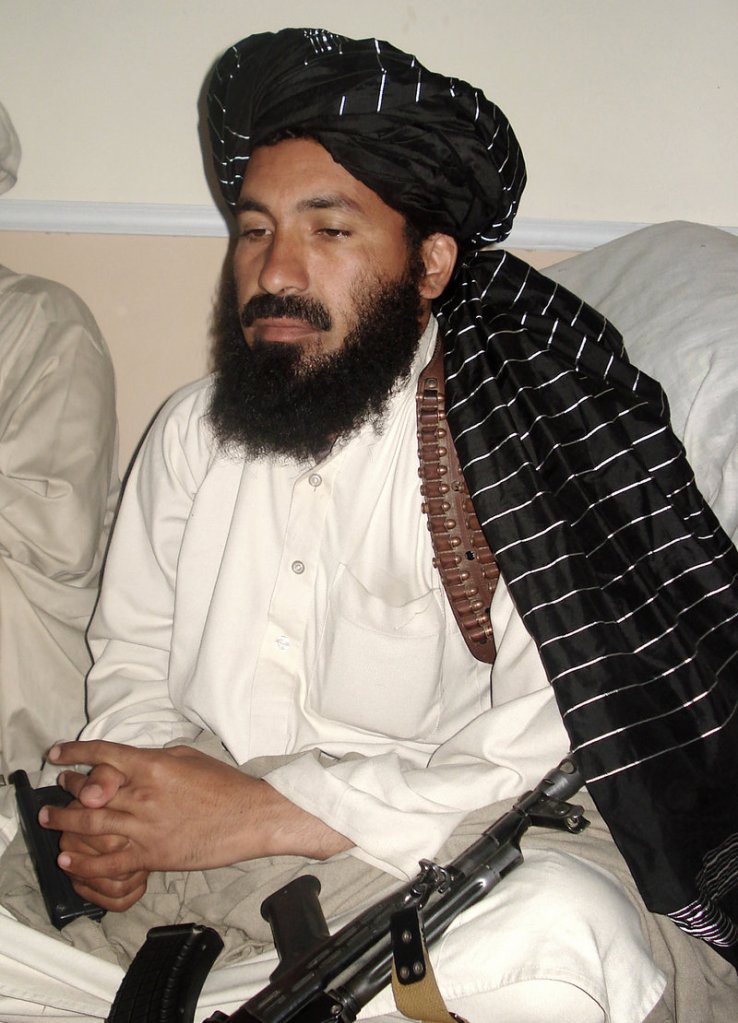ISLAMABAD – An American drone strike in Pakistan has killed a top Taliban commander who sent money and fighters to battle the U.S. in Afghanistan but had a truce with the Pakistani military, officials said Thursday.
While the death of Maulvi Nazir was likely to be seen in Washington as affirmation of the necessity of the controversial U.S. drone program, it could cause more friction in already tense relations with Pakistan because Nazir did not focus on Pakistani targets.
Nazir was killed when two missiles slammed into a house in a village in South Waziristan while he was meeting with supporters and fellow commanders. Eight other people were killed, according to five Pakistani security officials, speaking on condition of anonymity because they were not authorized to talk to the media.
A U.S. official confirmed the death of Nazir, along with an unspecified number of “trusted deputies.”
Nazir and those killed were “directly involved in planning and executing cross-border attacks on coalition forces in Afghanistan, as well as providing protection for al-Qaida fighters in South Waziristan,” said the official, who spoke on condition of anonymity because he was not authorized to describe casualties resulting from CIA counterterrorism actions.
Earlier, Pentagon spokesman George Little described Nazir as “someone who has a great deal of blood on his hands.”
At least four people were killed in a separate drone strike Thursday in the North Waziristan tribal region.
America’s use of drones against militants in Pakistan has increased substantially under President Barack Obama, and the program killed a number of top militants in the past year.
But the drone strikes infuriate many Pakistanis who see them as a violation of their country’s sovereignty.
Many Pakistanis complain that innocent civilians have also been killed, something the U.S. rejects.
A Pakistani official said while his government continues to object to the drone strikes, it does not object to removing Nazir from the battlefield, because despite his reported cooperation with the Pakistani government, he was suspected to have aided groups who attack Pakistani troops. The official spoke on condition of anonymity because he was not authorized to speak publicly.
The official said a U.S.-Pakistani working group seeking to craft a drone policy acceptable to Pakistan has made little progress, but that intelligence cooperation with the U.S. military and CIA had been improving, warming further after December’s high-level bilateral meeting of defense and intelligence officials in Peshawar cleared the way to release a long-delayed payment of $688 million in U.S. funds to the Pakistan military. The money is part of a regular program to reimburse some of Pakistan’s financial outlays in fighting militants and patrolling the Afghan border.
The official said the U.S. had also shared some intelligence leading to successful operations against Pakistani terrorist targets, but the surveillance and raids against such targets are now done only by Pakistani security and intelligence operatives.
The official said there has been no return to the joint Pakistani-CIA raids that took place before last year’s deadly border incident in which the U.S. fired on Pakistani troops, a controversial shooting of two Pakistanis by a CIA contractor, and the Navy SEAL raid that killed Osama bin Laden in Abbottabad.
Nazir earned the enmity of the U.S. by sending fighters to attack American forces in neighboring Afghanistan.
He’s also believed to have given shelter to al-Qaida members fleeing Afghanistan after the U.S. invasion and has maintained close relations with Arab members of the militant group.
But in Pakistan, many members of the military had a more favorable view of Nazir and similar militant chiefs who focus their attacks in Afghanistan and don’t strike Pakistani targets. Pakistan is believed to have reached a nonaggression pact with Nazir ahead of its 2009 military operation against militants in South Waziristan.
Still, Nazir outraged many Pakistanis in June when he announced that he would not allow any polio vaccinations in territory under his control until the U.S. stops drone attacks in the region.
Pakistan is one of three countries where polio is still present. Nine workers helping in anti-polio vaccination campaigns were killed last month, and the killings this week of five female teachers and two aid workers may also have been linked to the immunization campaigns.
As many as 10,000 people attended Nazir’s funeral in the town of Angoor Adda, where the strike happened.
One resident who was attending the funeral, Ahmed Yar, said Nazir’s body was badly burned and his face was unrecognizable.
Reports of individual deaths in such cases are often difficult to verify independently.
Nazir was active in many parts of Afghanistan and had close ties with the Afghan Taliban, said Mansur Mahsud, the head of the Islamabad-based FATA Research Centre, which studies the tribal regions.
“His death is a great blow to the Afghan Taliban,” he said.
Send questions/comments to the editors.



Success. Please wait for the page to reload. If the page does not reload within 5 seconds, please refresh the page.
Enter your email and password to access comments.
Hi, to comment on stories you must . This profile is in addition to your subscription and website login.
Already have a commenting profile? .
Invalid username/password.
Please check your email to confirm and complete your registration.
Only subscribers are eligible to post comments. Please subscribe or login first for digital access. Here’s why.
Use the form below to reset your password. When you've submitted your account email, we will send an email with a reset code.